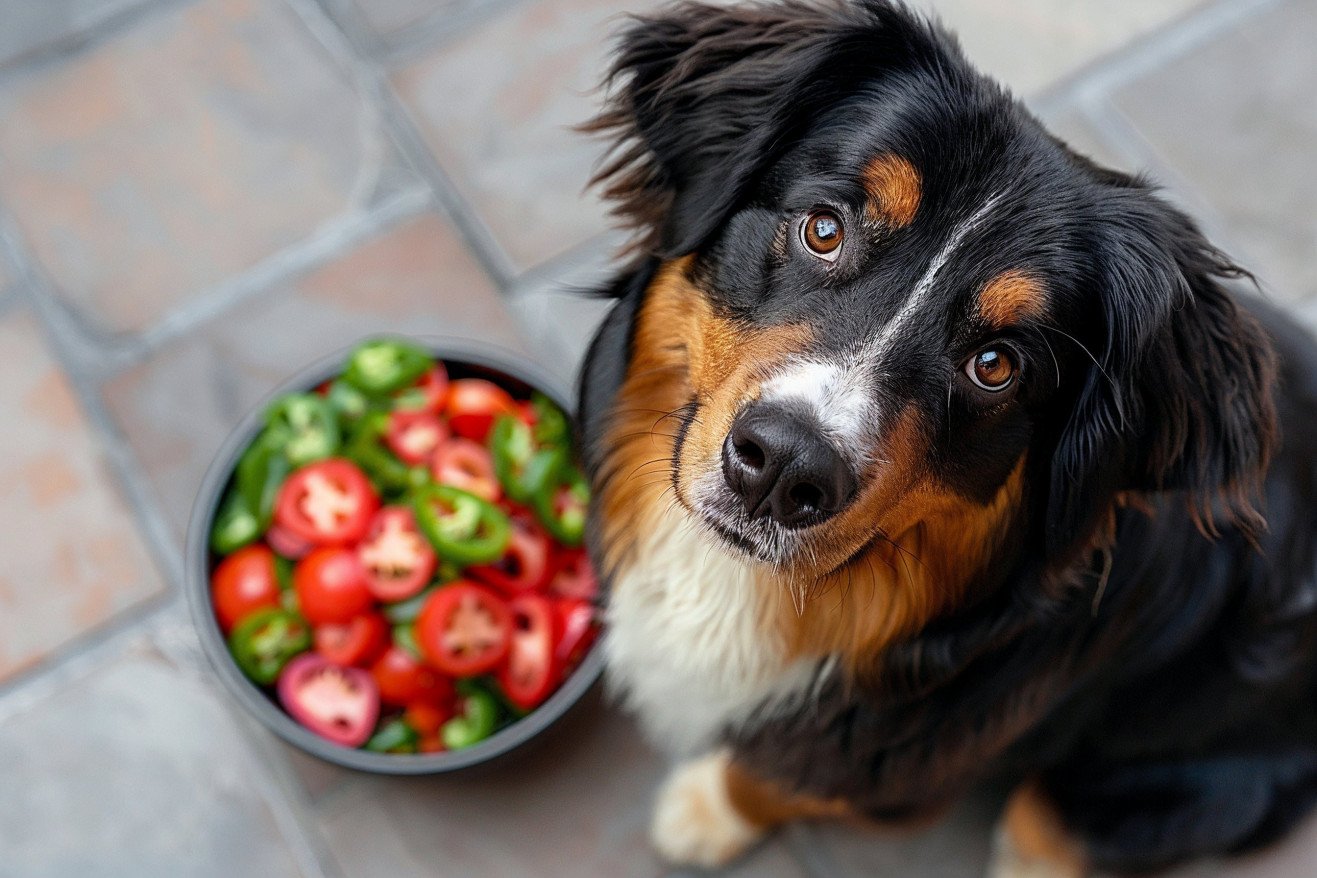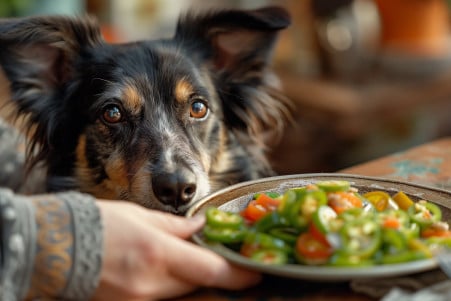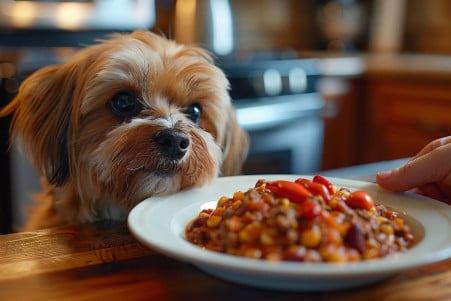Can Dogs Eat Red Peppers? Exploring the Pros and Cons
29 May 2024 • Updated 27 May 2024

While red peppers do have some nutritional value for dogs, their spiciness means that there are some potential concerns about their safety and how much dogs can eat. Red peppers are not poisonous to dogs, but they do contain capsaicin, which can cause digestive upset, including vomiting, diarrhea, and stomach pain. They should be given in small amounts and should be free of stems, seeds, and spices to avoid digestive problems.
From veterinary nutrition research to studies of dog metabolism, we'll take a deep dive into what the science says about the potential benefits and drawbacks of feeding red peppers to your dog. This article will help you better understand the science behind these issues so that you can make sure that you're feeding your dog a diet that's both healthy and tailored to their needs.
Can dogs eat red peppers?
Nutritional Benefits of Red Peppers for Dogs
Red peppers are a nutritional powerhouse for dogs, loaded with important vitamins and antioxidants that can help support a dog's health. According to The Pet Gourmet, they are a great source of vitamins A, C, and E, and beta-carotene. These vitamins and antioxidants are important for supporting a dog's immune system, reducing inflammation, and supporting eye, skin, and coat health.
What makes red peppers stand out is that they have a higher nutritional content than other colors of bell peppers. As mentioned by the American Kennel Club, red bell peppers have the most vitamins and antioxidants, making them the best choice for our dogs. The beta-carotene in red peppers, which is converted to vitamin A in the body, is especially important for skin, coat, and vision health, says veterinarian Stephanie Sheen.
While red peppers are full of health benefits, it's important to make sure they are part of a balanced diet that includes a variety of foods and to feed them in moderation. Eating too many red peppers can lead to an upset stomach, so it's best to start with small amounts and see how your dog reacts. Because of their many nutrients and potential to support a dog's health, red peppers can be a great addition to a dog's diet if they are fed in the right way.
Risks and Precautions: Feeding Dogs Red Peppers
The capsaicin in red peppers can lead to gastrointestinal upset in dogs, including stomach pain, vomiting, and diarrhea, according to PetMD. Red peppers' seeds and stems should be removed before feeding them to dogs to avoid a choking hazard or intestinal blockage, according to Rover.com.
Consuming too many red peppers can lead to digestive upset in dogs, so it's best to avoid feeding them large amounts of the vegetable. BeChewy suggests that small dogs be limited to a few small pieces of chopped bell pepper and that large dogs be limited to half of a small pepper. Dogs with a history of digestive issues or sensitivities may not be able to tolerate red peppers at all.
To avoid potential health problems, it's important to introduce red peppers to your dog's diet gradually and watch for any signs of a reaction. As always, if you're considering adding red peppers to your dog's diet, it's best to talk to your vet first.
How to Make Bell Peppers for Dogs: Safe Preparation and Serving Tips
While dogs can eat raw or lightly cooked bell peppers, cooking them can help with digestion, according to Fetch Pet. However, make sure not to season the peppers with anything like salt, garlic, or onion, which can be harmful to dogs, according to Spot.
Make sure to cut the bell peppers into small pieces to avoid a choking hazard, especially for smaller dogs. According to MasterClass, steaming or even pureeing the peppers can make them easier for dogs to eat and digest. You can also mix small amounts of cooked bell peppers into your dog's regular food to give them a nutritional boost, according to Fetch Pet.
Although bell peppers can be a nutritious addition to your dog's diet, it's important to introduce them gradually and keep an eye on your dog to make sure they don't have any digestive problems. Your vet can help you figure out how much and what form of bell peppers is best for your dog.
Spicy Peppers and Powders: Potential Hazards for Dogs
Spicy peppers like jalapeños and chili peppers are high in capsaicin and are not recommended for dogs, according to JAMES WELLBELOVED™. Capsaicin can lead to irritation, coughing, retching, gastrointestinal upset, and diarrhea in dogs. Red pepper powder, including cayenne and chili powder, can also be dangerous for dogs if they eat too much.
If a dog eats a spicy pepper or powder, it's important to watch for symptoms and call a vet if necessary. Although some studies have shown that small amounts of cayenne can be beneficial, Whole Dog Journal notes that it's best to ask a vet for advice before giving it to a dog, as it can be dangerous if it comes into contact with sensitive areas, and it's best to start with small amounts.
Conclusion: How to Add Red Peppers to Your Dog's Diet Safely
Red peppers can be a nutritious snack for dogs if they are given in the right amounts and with the right precautions. The vitamins and antioxidants in red peppers can help contribute to a dog's health. That said, it's important to take out the seeds and stems and avoid any spices that could cause an upset stomach.
Hot peppers and pepper-based spices should be avoided because of the potential dangers of capsaicin. As always, it's best to talk to a vet before giving your dog red peppers for the first time.


